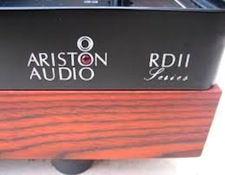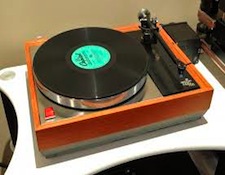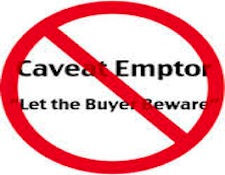It’s the time of year for saving money!
Back some time in the mid-1980s, I bought an Ariston RD11s turntable from a local High End audio dealer in Brea, California. The Ariston was a Scottish turntable that antedated the Linn Sondek LP-12, and was either identical to it, better than it, worse than it, similar but different, or actually the same product, re-branded, depending on who you spoke to. That all made sense because, also depending on who you spoke to or where you read it, Ivor Tiefenbrun, Linn’s founder, either had worked for Ariston, borrowed ideas from Ariston, or both he and Ariston bought their turntables from the same outside contract manufacturer.
 I’ll probably never know which was actually the case and, frankly, I don’t really care: Both the Linn and the Ariston ‘tables are very fine (I still own examples of both) and it’s not the quality of the turntables that this article is about, but rather the quality of the people and the organizations associated with them and, over a fairly long period of time, other audio products that I’ve either owned or considered buying.
I’ll probably never know which was actually the case and, frankly, I don’t really care: Both the Linn and the Ariston ‘tables are very fine (I still own examples of both) and it’s not the quality of the turntables that this article is about, but rather the quality of the people and the organizations associated with them and, over a fairly long period of time, other audio products that I’ve either owned or considered buying.
What happened with my RD11s was this: Not long after I bought it, the dealer I had bought it from went out of business and, not long after that, I noticed that the sides of its platter had, since I had owned it, gone from bright, shiny, polished aluminum, to a dull, flat, almost “zinc-looking” grey. I didn’t like that at all, and wanted to know what I could do to fix it. Initially, I didn’t even want to get it serviced, but just wanted to know what I could do, myself, to get it back to looking good and, in an effort to find out, I tried to hunt down Ariston’s US distributor, only to discover that it no longer carried the Ariston line, and that the closest source of aid would be the Canadian distributor, who also distributed Ortofon.
When I called them, though, they told me that their Ariston distributorship was for Canada, only, and that, with no current US distributor, about the only thing I could do to try to get help was to contact Ariston in Scotland, directly.
Hunting them down was no mean feat (remember that this was before the internet), but when I was able to, I sent them a telegram (remember those?) saying that I had a problem and requesting the name of someone to talk to and the best time and number to call. They responded promptly, and when the appointed time came, I called and to my great surprise, was transferred immediately to their Managing Director – the head of the company – a very charming gentleman whose name may have been (remember that this was nearly thirty years ago) Graham something.
 When I explained my problem to him, he asked if I had bought the turntable new (yes) and, explaining to me that their current model was the RD11 Superieur, which had been in production for nearly two years, he asked if I had known that I was buying a discontinued model (no). Then he asked me for the exact date of purchase, the price paid, and the name of the store I had bought it from, all of which I answered, offering, in addition, to FAX him, after we got off our call, my original receipt and sale documents. Responding that that would be unnecessary, he then asked me for my address.
When I explained my problem to him, he asked if I had bought the turntable new (yes) and, explaining to me that their current model was the RD11 Superieur, which had been in production for nearly two years, he asked if I had known that I was buying a discontinued model (no). Then he asked me for the exact date of purchase, the price paid, and the name of the store I had bought it from, all of which I answered, offering, in addition, to FAX him, after we got off our call, my original receipt and sale documents. Responding that that would be unnecessary, he then asked me for my address.
After I gave it to him, he apologized profusely, saying that he was deeply sorry that a product of less than their usual quality had been sold to me and that, in compensation, he was going to send me at no cost a brand new RD11 Superieur. He would, of course, pay for all regular shipping charges, he said, or if I wanted air freight, he would appreciate it if I would pay just that extra cost, which I agreed to do.
Grateful for his generosity, I asked for instructions for returning the original turntable to the factory, and was frankly amazed when he told me that there was no need to do so; that I could either keep it or destroy it and throw it away as I saw fit; but that he would appreciate it if I would never sell it: Ariston had a reputation for quality to maintain, he said, and he would not like to have any product not fully up to their standards ever be in circulation.
 Wow! Never before and never since have I ever even heard of a company of such honor and integrity, and I doubt if I ever will again.
Wow! Never before and never since have I ever even heard of a company of such honor and integrity, and I doubt if I ever will again.
What’s much more likely seems to be the caveat emptor attitude that I’ve gotten when other products I’ve bought have had problems: Like the very expensive phono cartridge, for example, that simply stopped working a few days after I bought it. When I contacted the distributor and told him about it, he at first told me that that was impossible; then, when I insisted that, impossible or not, it was true, he got all huffy and assured me that, out of the great many of those cartridges that they had sold, mine was absolutely the only complaint that they had ever gotten. The strange, sad, or funny part of it (or maybe all of the above, take your pick) was that, when I persisted in demanding some satisfaction and would NOT back-down, he finally agreed to turn me over to Bill, who, he said, “handles all of our complaints.”
Huh? Unless I’m missing something, it would seem that either mine wasn’t the only problem cartridge or that Bill must have spent a lot of time doing something other than handling customer complaints. Whichever was the case, I did eventually get a replacement cartridge at no charge.
 Finally, a last instance that just happened today: As you may have guessed, I, like many another Hi-Fi Crazy, am an inveterate (no, NOT invertebrate) inventor. With a number of patents to my name, and a constant interest in how things work, it seems that I’m always thinking of new or different ways to do things – particularly if those things have something to do with audio. Today, the idea kicking around in my head had to do with speakers, and in preparation for doing some preliminary “dick and diddle” to see if it might be worth actually devoting some time to, I contacted a very well-known company about getting some of their drivers. After the usual big-company-series-of-recordings-and-misdirections, I finally wound up talking with one of their “Customer Service” people. When he came on the line, I told him that I needed some technical information, which he promised to give me. Then I told him the model number of the driver I was interested in and asked him what its “throw” was. (The “throw” of a driver is the total forward-and-back range of motion of its diaphragm) Not only did this “customer-service-technical-expert” not know the throw for that particular driver, he didn’t even know what the word meant in a loudspeaker context. When I then told him, and asked him to find out the length of throw from someone else, he said that he doubted that anybody there (In his department? In the whole company?) would have that information, but that he would check, and put me on “hold” for several minutes. Finally, when he came back, I was told that what I wanted was “proprietary information” and that he couldn’t release it to me.
Finally, a last instance that just happened today: As you may have guessed, I, like many another Hi-Fi Crazy, am an inveterate (no, NOT invertebrate) inventor. With a number of patents to my name, and a constant interest in how things work, it seems that I’m always thinking of new or different ways to do things – particularly if those things have something to do with audio. Today, the idea kicking around in my head had to do with speakers, and in preparation for doing some preliminary “dick and diddle” to see if it might be worth actually devoting some time to, I contacted a very well-known company about getting some of their drivers. After the usual big-company-series-of-recordings-and-misdirections, I finally wound up talking with one of their “Customer Service” people. When he came on the line, I told him that I needed some technical information, which he promised to give me. Then I told him the model number of the driver I was interested in and asked him what its “throw” was. (The “throw” of a driver is the total forward-and-back range of motion of its diaphragm) Not only did this “customer-service-technical-expert” not know the throw for that particular driver, he didn’t even know what the word meant in a loudspeaker context. When I then told him, and asked him to find out the length of throw from someone else, he said that he doubted that anybody there (In his department? In the whole company?) would have that information, but that he would check, and put me on “hold” for several minutes. Finally, when he came back, I was told that what I wanted was “proprietary information” and that he couldn’t release it to me.
 You know, anybody can get a pretty good idea of a driver’s throw (at least if that driver is a woofer, as this one was), with just a nine-volt battery and a dial indicator, so what’s the “proprietary” big deal? Even more important, where’s the customer service in that company’s customer service?
You know, anybody can get a pretty good idea of a driver’s throw (at least if that driver is a woofer, as this one was), with just a nine-volt battery and a dial indicator, so what’s the “proprietary” big deal? Even more important, where’s the customer service in that company’s customer service?
Why aren’t there more companies like Ariston?





